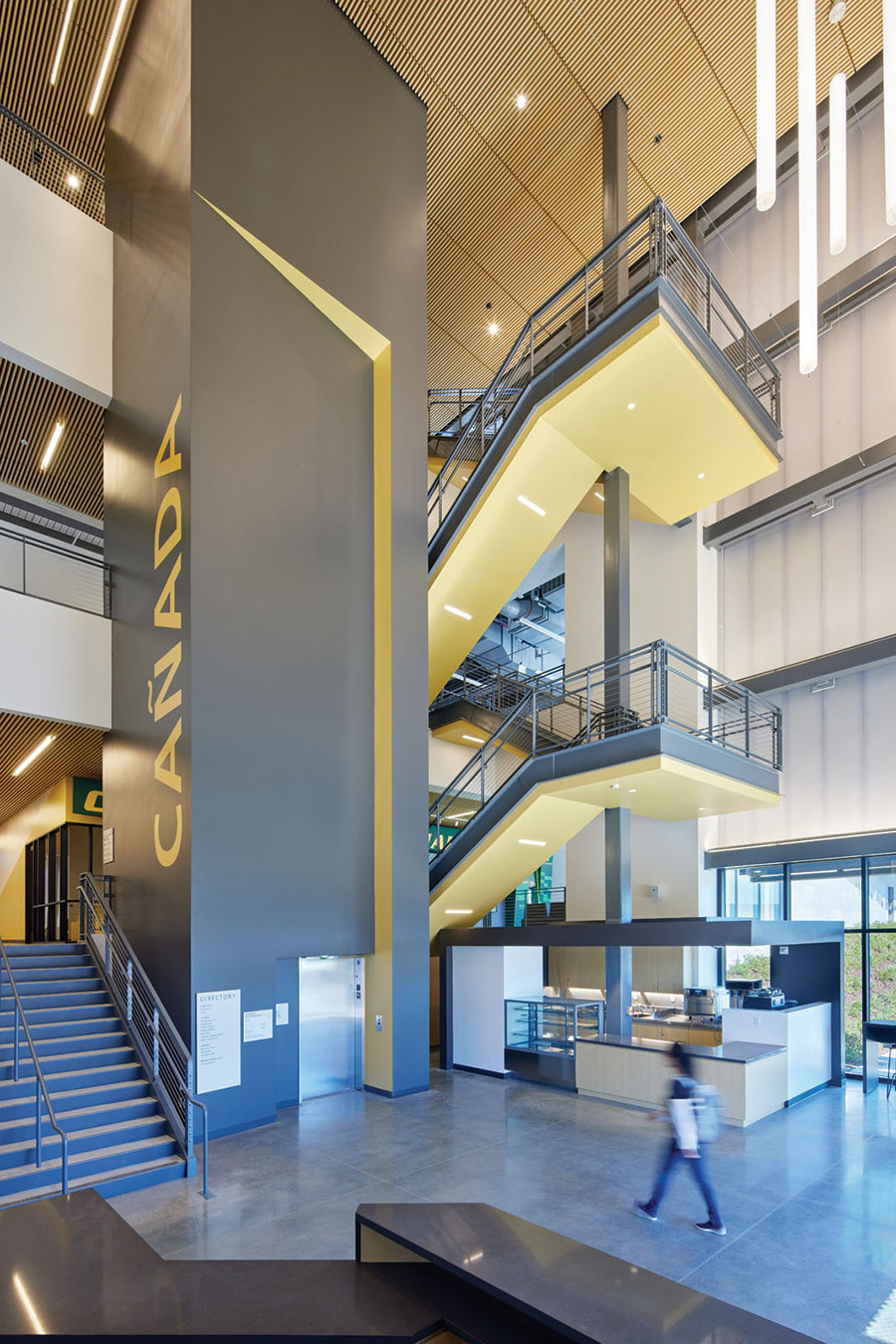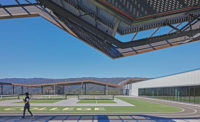Cañada College Kinesiology and Wellness Building | Submitted by Blach Construction
Redwood City, California
Region: ENR California
Excellence in Safety
titleOWNER: San Mateo County Community College District
titleLEAD DESIGN FIRM: ELS Architecture and Urban Design
GENERAL CONTRACTOR: Blach Construction
CIVIL ENGINEER: BKF
STRUCTURAL ENGINEER: Forell/Elsesser Engineers
MEP ENGINEER: AGC Inc.
LANDSCAPE ARCHITECT: SWA
CONSTRUCTION MANAGER: Swinerton
SUBCONTRACTORS: Intermountain Electric; KDS Plumbing Inc.; RCM Fire Protection Inc.; Water Technology Inc.; Simpson Gumpertz & Heger
The construction of the $96-million, 115,000-sq-ft, LEED Gold-certified athletics and educational community college facility in Redwood, Calif., would test Blach Construction’s safety program in unique ways.
From construction’s start in December 2017 to its completion in April 2021, the project team encountered a mix of jobsite hazards, including dangers inherent to the site and others imposed by the onset of the COVID-19 pandemic as well as from nearby fires.
Calling safety the “backbone” of its operation and touting an overall EMR rate of 0.38, Blach took unusual steps early on to protect workers. For the tight site, the contractor opted to use aerial boom lifts instead of scaffolding to install facade elements, for example.
A larger early safety concern was the demolition of an existing, approximately 60-ft-tall gymnasium featuring “massive” concrete columns and tilt-up panels, says Steve Acosta, Blach’s safety program manager. To mitigate dust, the contractor engineered large water lines that would be attached to the excavators performing the demolition.

The $96-million, 115,000-sq-ft facility at Cañada College recently achieved LEED Gold certification.
Photos by Bruce Damonte
Describing the gym demolition work as “intense,” with water spraying from the excavators, “it was like watching ‘Transformers’ in real time,” Acosta says.
The contractor also hired a hygienist to provide workers with detailed training about handling the removal of the site’s asbestos-laden soil.
Arguably the project’s biggest challenge arrived in early 2020 with COVID-19’s onset. Here, Blach and team responded quickly. Within a week of California’s shelter-in-place orders going into effect in mid-March, the company created and issued a 50-plus-page document of COVID jobsite protocols, says Acosta. As a result, the project experienced zero lost days due to coronavirus or shelter-in-place orders. Additionally, as wildfires burned, the contractor took extra measures to prevent worker smoke inhalation and installed air purifiers to both combat smoke and cleanse the air of viruses.





Post a comment to this article
Report Abusive Comment